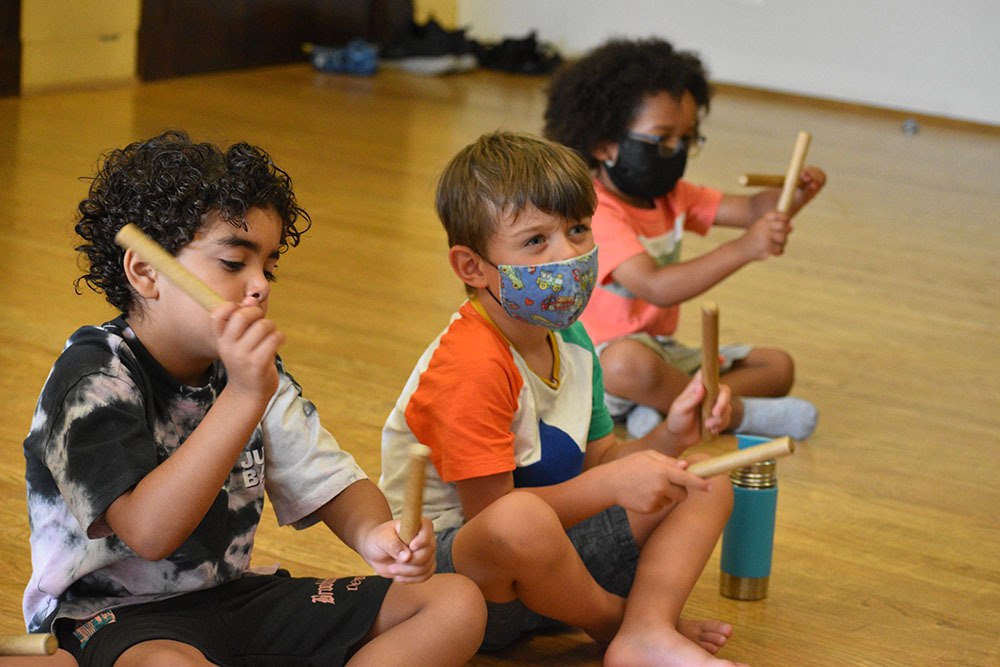For shy kids who aren’t naturally gregarious, school can be a tough place to break out of their shells. It’s awkward to slip into established playground cliques, and peer interaction during class is often too brief to hone communication skills. While there are programs solely devoted to improving social skills, tried-and-true sports and arts extracurriculars let children pursue a passion, shore up their communication skills — and make friends in the process. Here are just a few social obstacles kids overcome in after-school classes.
Learn to listen
If your child has trouble focusing on conversation, look into a class that makes interaction mandatory. Acting, says Ed Fiscella, artistic director for the Blackwood, NJ-based Mainstage Center for the Arts, heightens kids’ attention on what’s being said to them.
“When you’re acting, you need to feel what the other person is feeling, see where you can fit in and be ready to respond.”
Overcome shyness
“A lot of kids are shy or introverted, yet when they take on another character, they come out of themselves,” Fiscella says. Acting instills the ability to utilize similar skills off-stage. When shy kids are in a socially stressful situation — talking to a new acquaintance or giving a class presentation — they can recall how they conquered their fears onstage and “assume the role” of a confident speaker.
Read nonverbal cues
Activities that force children to rely on others’ physical movements can teach them to decipher nonverbal communication. Team sports do this effectively, as does a more esoteric pursuit, the circus arts. “In partner acrobatics, you need to trust that you’ll both do what you say you will, or else you might get hurt,” says Marc Miller, managing director of the Philadelphia School of Circus Arts.
Work with others
It can be tough for kids to collaborate with peers they don’t particularly like, but it’s an important life skill. Miller frequently sees kids learn to train with and trust those with whom they wouldn’t otherwise socialize: “There are some students who aren’t exactly best friends, but their mothers coordinate their training because they work well together.”
Practice makes perfect
Learning how to interact with others takes practice. Music lessons are the classic practice-makes-perfect pursuit. Kate Ransom, president of the Music School of Delaware in Wilmington and Milford, says the study of music teaches children that with persistent effort, they can achieve their goals. “They see that if they apply themselves and are disciplined in their practice, they’re going to eventually get good, and that’s a fundamental lesson about the process of learning,” she says. In the same way aspiring musicians continually practice to fine-tune their art, insecure kids must practice their social skills until they become second nature.
Build confidence
A lack of self-esteem can discourage kids from making and maintaining friendships. The sense of accomplishment that comes from performing well at an after-school activity “is a tremendous confidence-builder that translates to any area of life,” Ransom says. “It gives children the confidence that they know the elements that will lead to success.”






